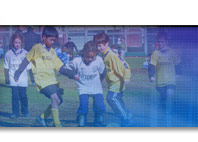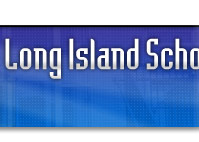| |
|
The Difference Between Public Schools and Private Schools
 So you're thinking of sending your child to a private school? What are the main differences you can expect between the public school system and that of a private school?
So you're thinking of sending your child to a private school? What are the main differences you can expect between the public school system and that of a private school?
All public schools follow the same basic set of local and federal education guidelines. These laws generally cover the topics of educational program content, school curriculums, budgets, and funding. Since public schools are funded by taxpayer finances there is no tuition involved in attending. Private schools are still subject to government guidelines as well, but with a much greater degree of flexibility, especially in monetary respects. Because private schools are not tax-funded, they have very few limitations on their usage of financial resources. As such, the cost of attending a private school can vary greatly. Parochial schools typically charge less than independent private schools. A variety of factors come in to play when determining the tuition cost of a private school, such as the school's reputation and whether the school is a boarding school or a day school. You may expect to pay as little as $2,000 for a year of private day school education, or as much as $50,000 for a year of prestigious boarding school education.
By law, public education facilities must admit and educate all children. Besides registering your student at your area's assigned public school, there is nothing more that needs to be done when enrolling besides making sure that your child is ready to go when the bus arrives. This does not hold true with private schools. Admission to a private school is entirely up to the school's own judgment and no one else's. Some prestigious private schools are difficult to get into and have a high level of competition at the admissions level.
In terms of curriculum, public school systems offer a program of education designed with the needs of the general public in mind. Basic subjects such as math, English, science, social studies, and physical education are taught. The state sets the standards for these and examines student competency via standardized testing at intervals throughout the year. Again, this is another area that private schools have more room to be flexible in. Private schools generate their own curriculum and may offer more specialized courses, perhaps even taking students on extended field trips that cover one or more of the topics being focused on. Many private schools also use a form of standardized testing to determine student competency.
While all public school educators are required to be state certified, private school teachers may not be required to have state certification. Often times private school teachers who do not have state certification are experts in their field with a corresponding degree who bring valuable experience to the educational table.
Because public schools are required to admit all students, the students attending them paint a picture of the community they come from. As such, there is often a diverse mixture of backgrounds present in public schools. Private schools tend to be more homogenous due to the admission and selection process and the type of student that will apply to take part in a private school based on its reputation. One common reason for sending a child to private school is the smaller class sizes. Private schools can afford to keep class sizes small, thus providing more frequent interaction and attention on the teacher-student level which is a desirable feature.
When the law says that all children have the right to be educated, this includes students with special needs. Public schools offer education programs for those who are physically or mentally handicapped in some fashion and provide teachers who are qualified to work with these needs. As mentioned before, private schools can admit or deny an applicant based on their own criteria, and this includes special educational needs. Although there are some private schools intended solely for those with these needs, many private schools do not accept special education cases.
|
|








